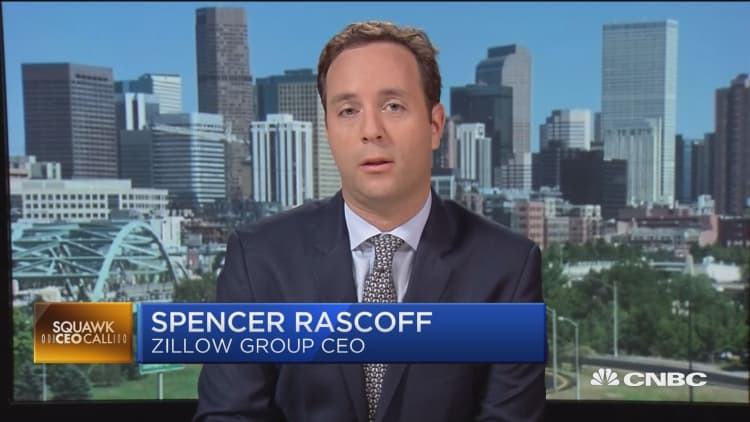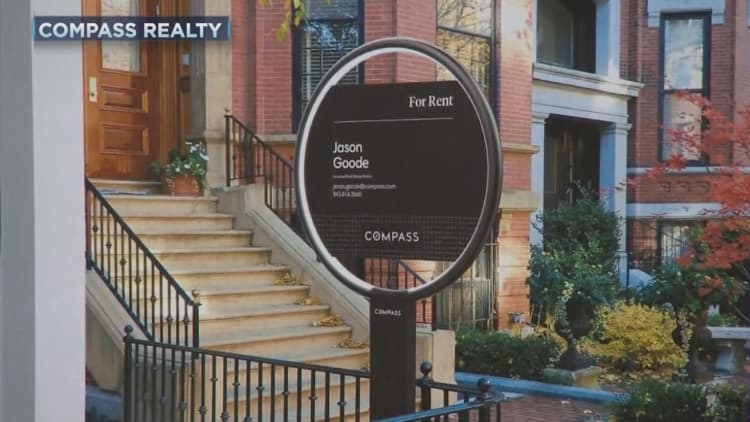
Shares of online home sales site Zillow were down more than 16 percent by the close on Tuesday, marking the company's worst day in nearly seven years.
Closing at $49.40 per share, the stock recovered some of its losses from earlier in the day, when the price was as low as $48.26 in morning trading. However, Zillow has not fallen as much in a single day since November 2011, when it shed 16.49 percent.
The drop followed Monday's after-the-bell earnings report that revealed uncertainty around "several moving parts" within the company. The company announced disappointing quarterly revenue, lowered full-year guidance based on slower-than-expected growth of a key division, and unveiled plans to acquire a national mortgage lender to assist with home purchases.
"Zillow reported Q2 results that revealed several moving parts," analysts for Canaccord wrote in a note Tuesday. "There are enough dislocations in the quarter to create a period of negative sentiment in the near term."
Revenue from home sales
Zillow reported revenue of $325 million for the second quarter, just shy of Thomson Reuters' consensus estimates of $326 million. Revenue for the quarter a year earlier was about $267 million.
Adjusted earnings for the latest quarter were 13 cents a share, 3 cents a share better than expected and reversing an adjusted loss of 12 cents a share reported for the year-earlier period.
Zillow recently launched a new strategy of buying and selling homes directly to users, expanding its offerings beyond real estate brokers. But the company's quarterly report revealed slower-than expected growth due to delays in home sales.
"Zillow bought 19 homes in 2Q, and we estimate another 30 or so in 3Q, based on public records, but the company has only sold nine homes so far, putting it significantly behind its aggressive sales goals," analysts for Stifel wrote in a note Tuesday. "Management noted the average length of time between sellers accepting offers and the corresponding closing dates has been a month or more, longer than initially forecast, which is delaying the planned ramp-up in the business."
As a result, Zillow lowered its full-year revenue guidance to a range of $1.32 billion to $1.35 billion, down from a previously stated range of $1.43 billion to $1.58 billion.
Taking on a mortgage lender
To supplement the new strategy, Zillow announced Tuesday its plans to acquire Mortgage Lenders of America. Terms of the deal were not disclosed, but Wall Street did not look favorably on the tie-up.
Analysts for Bank of America/Merrill Lynch downgraded the stock Tuesday, warning its move into mortgage lending could hurt profitability next year.
CEO Spencer Rascoff defended the move Tuesday on CNBC's "Squawk Box."
"It allows us to monetize the Zillow Offers business a second way," he said. "First, we can make money from buying and selling. Second, we can make money from mortgage origination. Third, we can make money by passing the homeseller, who doesn't want to sell their home to us, off to a premier agent."
He noted that Zillow's practice of purchasing and selling homes, which can take months, results in delayed revenue. That contributed to the tech real estate company's weak third-quarter guidance, he said.
Shares took a similar beating in April when the company announced the strategy. But Rascoff maintained in May the strategy would pay off.
WATCH: How 'for sale' sign redesign is disrupting the real estate market



